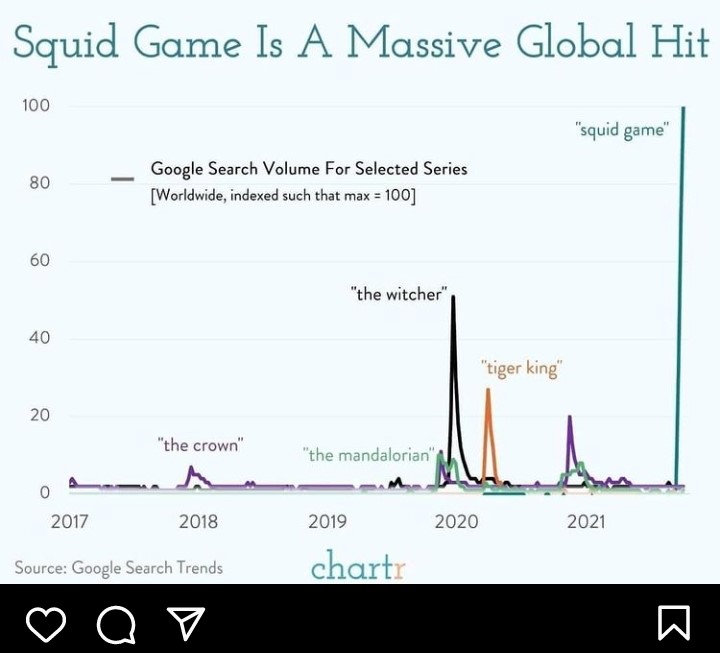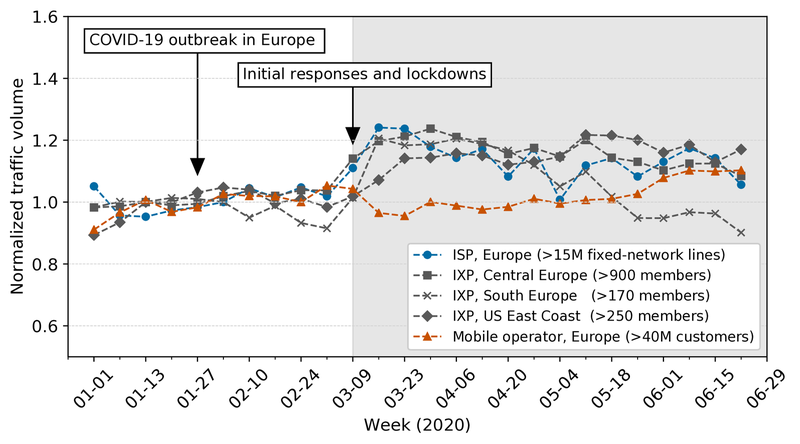A couple of weeks ago, my friend told me about the new TV series called Squid Game that came out on Netflix. Since I was looking for something to watch at that time, I decided to give it a try without really knowing what it’s about. What can I say, it took me three days to watch the entire season. The show addresses the paycheck-to-paycheck type of lifestyle in which people live in constant debt. The fear of financial failure drives the players and makes them risk their own lives, just because there is a slight chance that they might win the game and get the money at the end. The show became a huge success in Korea, mainly because it resonates so well with the audience.

Squid Game reached first place in the Top 10 within four days of its release date. The show took over not only Netflix but also social media platforms. Instagram and Twitter are flooded with memes and tweets about it. Its popularity increased even more after the social media outage, when Facebook’s apps, including WhatsApp and Instagram, went down for several hours. Twitter and later also Instagram, were the main platforms where users shared the memes about the outage, using the Squid Game’s theme.

Lockdown, live-streamed matches, video games, and increased activity on streaming platforms are responsible for the rising Internet traffic. During the lockdown, Internet providers around the world were constantly making repairs and adding capacity to keep up with the rising usage of data. To lower the traffic, many streaming platforms including Netflix decided to lower the quality of the videos, reducing that way the Internet traffic. Marc Allera, BT’s chief executive of the consumer division said that every terabyte of data that is consumed above the current levels costs £50 million, and only last year there were 4 terabytes of extra usage. This shows how costly the over-usage of the Internet is. Importantly, Netflix, Facebook, YouTube, and Activision Blizzard (video game companies) are responsible for up to 80% of daily data usage.

Now, this huge success of the Squid Game has caused a surge in traffic. This is probably something that we don’t really think about, at least I know I don’t, but companies actually have to make sure that this increased data usage doesn’t make the connection significantly slower, and have to pay for the over-usage of data, as it was already said. For this reason, the local Korean broadband provider (SK) took legal actions and demanded that Netflix pay for the increased surge in traffic. SK wants Netflix to pay for the services it is being carried on, especially since Netflix already has a major impact on the Internet traffic but doesn’t contribute to its costs, which after hits such as Squid Game have become even bigger. The rise of online activity is also slowing down the connection, even though, the broadbands try to increase their capacity. So, after the premiere of Squid Game, the issue of Netflix not paying internet service providers (ISP) fees returned. Interestingly, the fee is being paid by Netflix in the United States, similarly Facebook and Amazon pay this fee in Korea.
https://www.nytimes.com/2020/03/26/business/coronavirus-internet-traffic-speed.html
https://www.theverge.com/2021/10/1/22704313/sk-broadband-netflix-suing-for-payment-squid-game


Recent Comments